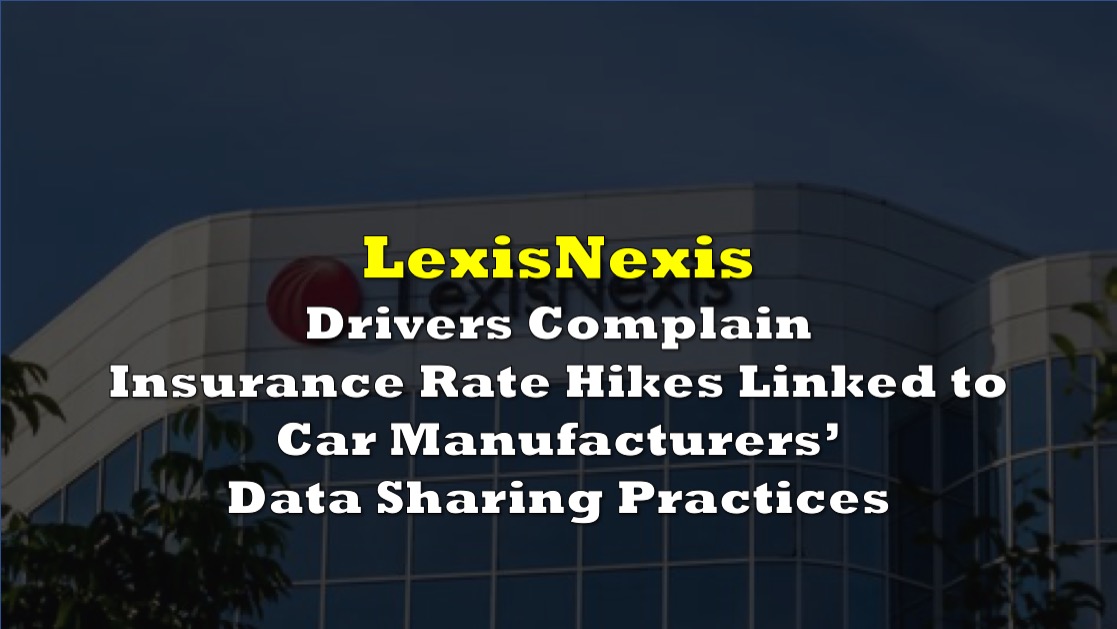Drivers across the United States, spanning various car manufacturers including General Motors (NYSE: GM), Ford (NYSE: F), Honda, and other popular brands, have expressed frustration over unexpected increases in their insurance rates.
The source of their dismay: allegations that these automakers have been sharing driving behavior data with insurance issuers without their explicit knowledge.
“Drivers of cars manufactured by General Motors, Ford, Honda and other popular brands say that their insurance rates went up after the companies sent data about their driving behavior to issuers without their knowledge.
— Chief Nerd (@TheChiefNerd) March 13, 2024
Dahl said that his insurance agent told him the price… pic.twitter.com/aikf0GlQ1J
Kenn Dahl, a 65-year-old businessman from the Seattle area, recently spoke out about his ordeal to The New York Times. He revealed that his car insurance costs surged by a staggering 21% in 2022, following the installation of GM’s OnStar Smart Driver system in his Chevy Bolt. Dahl claimed that this system, unbeknownst to him, collected detailed information about his driving habits and subsequently shared it with insurance providers.
Dahl recounted his astonishment upon learning that his insurance agent attributed the price hike to data provided by LexisNexis. Apparently, this data compiled a comprehensive report tracking every aspect of his driving behavior over a six-month period. The 258-page report included details such as trip start and end times, distances covered, and instances of speeding, hard braking, and sharp accelerations.
The report, much to Dahl’s surprise, included information on over 640 trips, detailing start and end times, distances covered, and instances of speeding, hard braking, and sharp accelerations. The data was analyzed by LexisNexis to create a risk score utilized by insurers to tailor insurance coverage.
Expressing a sense of betrayal, Dahl remarked, “They’re taking information that I didn’t realize was going to be shared and screwing with our insurance.”
One trip in particular, spanning 18 minutes and covering 7.33 miles, was meticulously scrutinized by the LexisNexis report. It noted two instances of rapid acceleration and two incidents of hard braking during this single excursion.
The practice of sharing driving behavior data with insurance companies has become increasingly prevalent in recent years. While some drivers willingly participate in programs that monitor their driving habits through dongles or smartphone apps, others find themselves unwittingly enrolled in similar schemes.
Automakers, including GM, Honda, Kia, and Hyundai, offer optional features in their connected-car apps that assess individuals’ driving performance. However, many drivers are unaware that enabling these features results in the transmission of their driving data to data brokers like LexisNexis.
This sentiment resonated with other drivers, not limited to electric vehicle owners. A Cadillac driver from Palm Beach County, Florida, disclosed his intentions to pursue legal action against GM after being denied car insurance by seven different companies. Similarly enrolled in the OnStar Smart Driver subscription service, he contested the accuracy and relevance of the driving behavior data compiled by LexisNexis.
Concerns over transparency and privacy have prompted scrutiny from policymakers and consumer advocates. Senator Edward Markey of Massachusetts called for an investigation by the Federal Trade Commission into potential violations of consumer protection laws.
Meanwhile, drivers like Dahl and others who discovered their driving data being shared without their explicit consent are left feeling disillusioned and frustrated. Some have vowed to take legal action against automakers, while others plan to sever ties with certain car brands altogether.
GM, however, defended its position, asserting that the OnStar Smart Driver service is optional and requires customers’ consent multiple times before any data is shared with insurance carriers through third-party channels.
Nevertheless, concerns regarding data privacy and transparency persist within the automotive industry. Other manufacturers, including Subaru, Mitsubishi, Honda, Kia, and Hyundai, have also come under scrutiny for similar data-sharing practices.
Information for this briefing was found via The New York Times and the sources mentioned. The author has no securities or affiliations related to this organization. Not a recommendation to buy or sell. Always do additional research and consult a professional before purchasing a security. The author holds no licenses.




